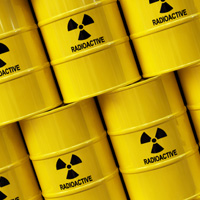Grants to 28 organizations for our nuclear capstone project will cultivate diversity in the field, challenge nuclear deterrence theory, lead at the nexus of climate and nuclear issues, and support key organizations.
MacArthur today announced $21.3 million in grants to 28 organizations as part of its Nuclear Challenges capstone project to foster a stronger, more diverse nuclear field and exit the field responsibly.
MacArthur’s nuclear capstone focuses on four areas of work: encouraging a diverse pipeline of talent in the nuclear field, challenging nuclear deterrence theory, providing leadership around the intersection of nuclear and climate issues, and supporting key organizations in the nuclear field.
“These grants represent our hopes that the nuclear field will continue to grow and evolve in ways that make it stronger and more effective,” said Valerie Chang, MacArthur’s Managing Director of Programs. “We firmly believe that the areas of work touched by our capstone are fundamental to success in reducing nuclear threats in the decades ahead.”
MacArthur announced in February 2021 that the Foundation would shift away from the Nuclear Challenges program strategy and implement a capstone project. At the conclusion of the capstone grants in 2023, MacArthur will exit the nuclear field.
Cultivate Diversity and New Voices
An initial four organizations will receive a total of $2.7 million to cultivate diversity and empower new voices and underrepresented communities in the nuclear talent pipeline. MacArthur’s goal for these grants is to help generate increased attention, recognition, and influence of diverse voices including voices of women and Black, Indigenous, and People of Color experts in the nuclear field. The Foundation also hopes to encourage new and strengthened policies and practices in the field that promote diversity, equity, and inclusion. Today's set of grant recipients are:
- Girl Security
- Ploughshares Fund
- Center for International Security and Cooperation at Stanford University
- Truman Center for National Policy
Innovate to Challenge Deterrence Theory
MacArthur will provide a total of $4.2 million to three organizations to support research to challenge nuclear deterrence theory. The Foundation’s goal is the development of a body of research that seeds new thinking on challenging, and ultimately replacing, nuclear deterrence theory as the predominant lens through which we view nuclear weapons strategy. The grant recipients are:
- Chatham House
- Managing the Atom Project at the Belfer Center for Science and International Affairs at Harvard University
- New Venture Fund’s Horizon 2045 Project
Lead at the Nexus of Nuclear and Climate Risks
Four organizations will receive grants totaling $2.2 million to provide leadership at the nexus of nuclear and climate risks, with a focus on mitigating the security implications of nuclear power’s expansion as a climate solution. MacArthur’s goals for this area of work are to model productive dialogue on the future of nuclear energy in the climate battle, elevate policy questions about nuclear energy in U.S. domestic and foreign climate policy, and reimagine the global nuclear governance system for a world with more nuclear energy. The grant recipients are:
Preserve Support for Critical Work
With $9.6 million in grants, MacArthur will preserve support for a limited number of organizations critical to the nuclear dialogue. The Foundation’s goal is to ensure the field maintains trusted and effective organizations at this challenging moment and into the future. The grant recipients are:
- Bulletin of the Atomic Scientists
- Carnegie Endowment for International Peace
- Managing the Atom Project at the Belfer Center for Science and International Affairs at Harvard University
- Nuclear Threat Initiative
- Middlebury Institute of International Studies at Monterey
- The Stimson Center
In addition to these grants, MacArthur has awarded $2.6 million in final grants to organizations previously involved with the Nuclear Challenges strategy. MacArthur will announce additional capstone grants in the months ahead, but the Foundation is not currently accepting proposals for funding under the Nuclear Challenges capstone project.




